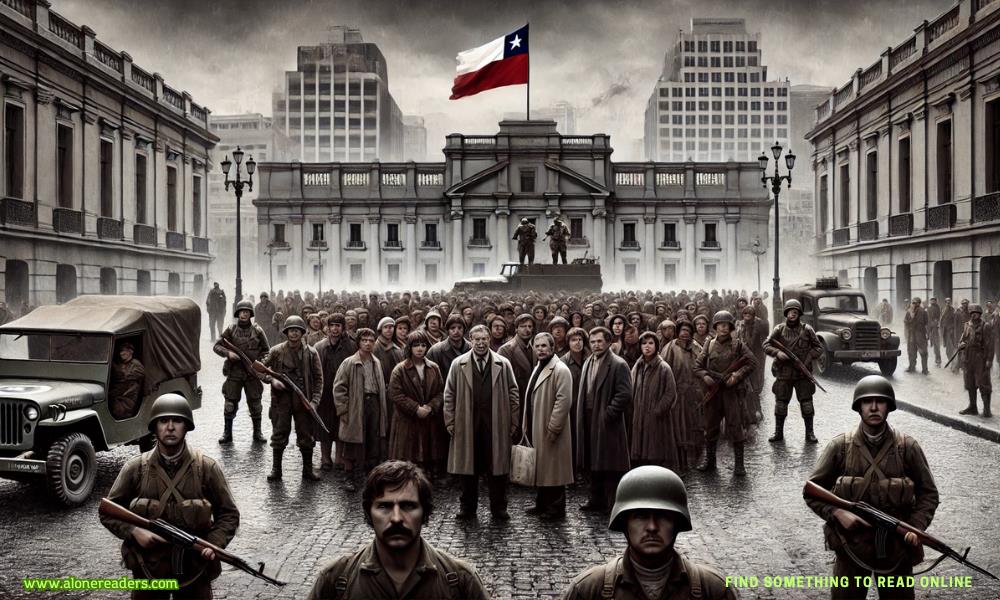
The Pinochet dictatorship in Chile, lasting from 1973 to 1990, was one of the most defining periods in the nation’s modern history. It began on September 11, 1973, when a military coup led by General Augusto Pinochet ousted the democratically elected president, Salvador Allende. The coup not only marked the end of Chile’s experiment with socialism but also ushered in a brutal military regime that would govern the country for 17 years. This period was characterized by widespread human rights violations, significant economic transformations, and the suppression of political dissent.
The coup itself was a culmination of mounting tensions in Chile. Salvador Allende, the world’s first democratically elected Marxist president, had faced growing opposition due to his socialist policies, which included nationalizing industries and redistributing wealth. While these measures were popular among the working class, they alarmed business elites, the military, and the United States, which feared the spread of communism in the region. The economic instability, food shortages, and strikes created a fertile ground for military intervention. Backed by the CIA and U.S. government, Pinochet and his allies launched a swift and violent overthrow of Allende’s government, with the presidential palace being bombarded by military forces. Allende died during the attack, under circumstances that remain contested.
Once in power, Pinochet established a military junta, with himself as the head of state. The regime wasted no time in consolidating its authority. A state of emergency was declared, the constitution was suspended, and political parties were outlawed. Thousands of Allende’s supporters, trade unionists, and suspected leftists were arrested, tortured, or executed. The infamous National Intelligence Directorate (DINA), Pinochet’s secret police, orchestrated a campaign of terror against dissidents, both within and outside Chile. Estimates suggest that over 3,000 people were killed or disappeared, and tens of thousands were tortured. The regime’s brutality was so extensive that it led to international condemnation, though Pinochet’s government maintained the support of powerful allies, including the United States, which saw him as a bulwark against communism.
Economically, Pinochet’s rule brought about radical changes that continue to shape Chile today. Abandoning Allende’s socialist policies, the regime embraced neoliberalism under the guidance of the “Chicago Boys,” a group of Chilean economists trained at the University of Chicago. They implemented free-market reforms, including privatizing state-owned enterprises, reducing tariffs, and dismantling trade unions. These policies were praised by proponents of neoliberalism for stabilizing the economy and fostering growth, particularly during the latter part of Pinochet’s rule. However, critics argue that the reforms exacerbated inequality, as the benefits of economic growth were disproportionately concentrated among the wealthy. The working class and poor bore the brunt of austerity measures, such as cuts to social services and the weakening of labor rights.
The regime’s hold on power began to waver in the 1980s. The global economic downturn and domestic unrest fueled opposition to Pinochet’s rule. Protests erupted across the country, demanding an end to the dictatorship and a return to democracy. Despite the repression, the opposition movement gained momentum, forcing Pinochet to call for a plebiscite in 1988 to determine whether he would remain in power. In a surprising turn of events, the Chilean people voted against extending his rule. This outcome marked the beginning of the transition to democracy, though Pinochet ensured that he and his allies retained significant influence through the 1980 constitution, which granted the military a prominent role in politics.
On March 11, 1990, Pinochet handed over power to Patricio Aylwin, the democratically elected president, marking the official end of the dictatorship. However, Pinochet continued to wield considerable power as commander-in-chief of the army until 1998 and later as a senator for life, a position that shielded him from prosecution for many years. It wasn’t until his arrest in London in 1998, on charges of human rights violations, that the extent of his crimes began to be publicly scrutinized. Although he was never fully held accountable due to legal and health issues, the cases against him symbolized a broader reckoning with Chile’s past.
The legacy of the Pinochet dictatorship is deeply polarizing. For some, his economic reforms laid the foundation for Chile’s prosperity, earning him grudging respect. For others, the human cost of his regime—a nation scarred by torture, disappearances, and fear—overshadows any economic achievements. The transition to democracy did not immediately erase the divisions in Chilean society, as debates over accountability, justice, and memory persisted for decades.
Today, Chile continues to grapple with the impact of Pinochet’s rule. The nation’s constitution, drafted during the dictatorship, remains a contentious issue, with many calling for its replacement to better reflect democratic values. Efforts to address the human rights abuses of the era, including compensation for victims and truth commissions, have sought to heal the wounds left by the regime. However, the scars of the dictatorship remain, serving as a reminder of the dangers of authoritarianism and the resilience of those who fought for democracy.
The Pinochet dictatorship was a period of profound transformation and turmoil for Chile. It reshaped the country’s political, economic, and social landscape, leaving a legacy that is still debated and felt today. While Pinochet’s regime may have ended decades ago, its impact on Chile’s identity and future is indelible, ensuring that the lessons of this dark chapter remain relevant for generations to come.